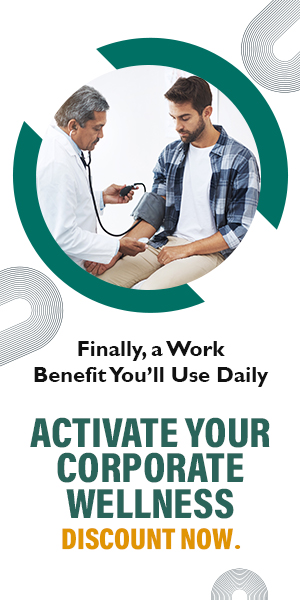Movement
Adaptive Yoga For Every Fitness Level
From modified poses to the use of supportive equipment, uncover yoga for people with disabilities which offers a personalised approach to fitness for everyone.

Yoga has taken the world by storm thanks to its profound benefits for the body, mind, and spirit. Once seen as the discipline of the non-disabled, yoga has evolved in recent years to become more inclusive. Enter adaptive yoga—a game-changer that proves yoga is for everyone. By breaking down barriers and embracing individuals of all abilities, body types, and ages, adaptive yoga shows that with a few modifications, everyone can tap into the transformative power of yoga.
Unlock insider access to the best movement plans for free! Sign up today.
Adaptive Yoga and It’s Principles
Adaptive yoga is rooted in inclusivity, empathy, and creativity. While regular yoga classes often follow a structured sequence of poses, adaptive yoga takes a more flexible approach to ensure everyone feels welcome and comfortable. Adaptive yoga is an umbrella term that encompasses various specialised practices, such as yoga for specific medical conditions like multiple sclerosis, yoga for people with physical disabilities, and yoga for older adults. If you have an injury, condition, or ability level that requires modifications in a traditional yoga class, adaptive yoga might be the perfect fit for you.
- People with physical disabilities: Adaptive yoga is designed to accommodate individuals with a wide range of physical disabilities, ensuring they can participate and benefit fully.
- Seniors and older adults: As ageing can bring about various physical limitations, adaptive yoga provides a gentle yet effective way for seniors to stay active and healthy.
- Those new to yoga: Those new to yoga can benefit from the customised approach of adaptive yoga, which eases them into practice at a comfortable pace.
- Individuals recovering from injury: Adaptive yoga offers modifications that are ideal for those in recovery, helping them regain strength, flexibility, and confidence in their bodies.
- Pregnant women: Expectant mothers can safely practise adaptive yoga, which adjusts poses to accommodate their changing bodies and promotes overall well-being during pregnancy.
Related story: 8 Simple Chair Yoga Poses To Recharge Your Mind And Body
This comprehensive approach includes yoga tailored for those with partial or complete paralysis and for individuals with conditions like spina bifida or cerebral palsy that affect mobility. Here are some key principles behind adaptive yoga:
1. Acceptance: Adaptive yoga encourages participants to accept their bodies and capabilities without judgement. It fosters a non-competitive atmosphere where individuals can explore their strengths and limitations with kindness and compassion. This approach not only enhances physical well-being but also nurtures a positive self-image and mental resilience, making yoga a truly holistic practice for everyone.
2. Inclusivity: Everybody is a yoga body. Adaptive yoga welcomes individuals of all abilities, body types, and fitness levels, ensuring that everyone can participate and benefit from the practice. No matter where you’re starting from, adaptive yoga has got something for you.
3. Empathy: Understanding and compassion are at the heart of adaptive yoga. Instructors listen to each participant's unique needs and challenges, offering modifications and support to create a safe and nurturing environment.
4. Creativity: Adaptive yoga encourages innovative thinking. Instructors use a variety of props and alternative techniques to modify poses, making yoga accessible and enjoyable for everyone.
5. Flexibility: In comparison to traditional yoga, there's no rigid sequence of poses. Adaptive yoga classes are tailored to the participant's abilities and comfort levels, ensuring that each session is personalised and effective.
Related story: Yoga is For Everyone: Take Inspiration From These Five Body-Positive Influnecers
Benefits of Adaptive Yoga
Adaptive yoga helps increase the range of motion by gently stretching muscles and joints, making everyday movements easier and more fluid. Tailored poses build muscle strength gradually, supporting overall body stability and reducing the risk of injury. By focusing on balance-oriented poses, adaptive yoga helps improve coordination and stability, which is particularly beneficial for those with mobility challenges.
Adaptive yoga may present a safe and effective treatment avenue for individuals grappling with Parkinson’s disease. A 2019 randomised clinical trial issued in the journal JAMA Neurology, revealed that alongside enhanced physical mobility, adaptive yoga contributed to a notable decrease in depressive and anxiety symptoms among patients diagnosed with Parkinson’s disease.
Related story: Yoga Flow With Zubin Atre, Yoga Expert And Author
Adaptive Yoga for All
Adoptive yoga offers a tailored and accessible approach that empowers individuals to experience the transformative benefits of yoga regardless of their physical abilities or limitations. It includes using props for support, adjusting the pose’s intensity, or offering alternative variations to accommodate diverse levels of flexibility, strength, and mobility. Blocks can be placed under hands or feet to provide stability, while straps aid in stretching and deepening poses. Chairs offer support for seated poses or balance, and bolsters provide extra cushioning for relaxation poses.
1. Chair Yoga: Chair yoga is a beloved form of adaptive yoga, ideal for individuals facing limited mobility or balance challenges. This gentle practice entails performing modified yoga poses while comfortably seated on a chair or utilising it for support during standing postures. Adaptive chair yoga sessions are frequently available in various settings, including senior centres, workplaces, and rehabilitation facilities. This accessible practice opens the door for people of all ages and abilities to experience the myriad benefits of yoga in a safe and supportive environment.
2. Yoga for individuals with visual impairments: It is a specialised practice that requires instructors with expertise in adaptive yoga. These skilled instructors lead classes specifically tailored to meet the needs of participants with visual impairments. Verbal cues play a crucial role in guiding individuals through yoga poses, providing clear instructions and descriptions of each movement. Additionally, hands-on guidance may be utilised to ensure participants can safely and effectively transition into and hold poses.
3. Trauma-informed yoga: Trauma-informed yoga represents a specialised approach that acknowledges the potential triggers individuals with trauma histories might encounter during a yoga class. Instructors within this framework prioritise creating a safe and empowering environment, where participants are given choices and autonomy in their practice.
4. Yoga for wheelchair users: Adaptive yoga isn't just for people who can stand on their mats. It's also super adaptable for those who roll on wheels! Wheelchair users can totally get in on the yoga action, focusing on getting stronger, more flexible, and tuning into their breath—all while staying seated. Whether you're chilling in a group class or kicking it one-on-one, adaptive yoga has got your back, literally. It's all about making yoga work for you, wherever you are.
Related story: Yoga Poses To Help You De-stress
Final Thoughts
Everyone deserves the opportunity to engage in activities that promote their physical and mental well-being, regardless of their age, ability, or background. Regardless of your fitness level or physical limitations, adaptive yoga welcomes you with open arms. Whether you're a beginner, recovering from injury, living with a chronic condition, or simply seeking a more accessible approach to yoga, adaptive yoga offers a supportive environment where you can explore and embrace your unique abilities. Don't let perceived barriers hold you back—try adaptive yoga and discover the empowering journey it can offer.
For those interested in exploring adaptive yoga further, UR.Life offers a range of online classes and videos tailored to accommodate various abilities and preferences. From gentle chair yoga sessions to modified vinyasa flows, UR.Life provides accessible resources that empower individuals to embark on their yoga journey from the comfort of their own home.
Visit UR.Life yoga program Namaste to discover their collection of yoga classes designed for beginners and start your transformative practice today.
Unlock insider access to the best movement plans for free! Sign up today.
EXPLORE MORE
Health isn’t built in a day, it’s shaped by the choices we make every morning, afternoon and evening. From how you move and eat to how well you sleep and stay on top of check-ups, small everyday choices today can quietly reduce your risk of illness tomorrow.
Sustainable wellness isn’t about checkpoints and incentives, it’s about systemic design that honours human experience, integrates culture, and fosters strategic, long-term well-being.
Well-being isn’t a product you purchase; it’s the result of everyday conditions, many of which don’t require money.
Instead of chasing long workouts, micro-movement shifts the focus from “Did I work out today?” to “Did I move often enough today?”








.jpeg)
.jpg)
